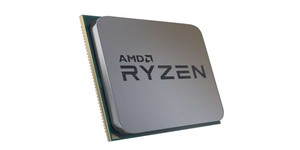
AMD has confirmed that it has a fix for the FMA3 bug which hard-crashes Ryzen-based systems, and that it will soon be making a microcode update available to board partners with BIOS updates expected to land in early April.
News of a flaw in AMD's Ryzen processors which allowed any application running an Intel-style fused multiply-add instruction with three operands, known as an FMA3 instruction, to hard-crash the system broke earlier this month. While not affecting software correctly compiled for the Zen architecture powering Ryzen, which uses a four-operand fused multiply add (FMA4), it gave malicious software the ability to crash any Ryzen system on demand - as well as causing headaches for anyone running software compiled with Intel processors in mind.
Nearly two weeks ago, AMD confirmed the existence of the bug and pledged it was working on an update to its AMD Generic Encapsulated Software Architecture (AGESA) microcode which it would be distributing to board partners for inclusion in EFI/BIOS updates. Late last night, the company announced the bug was squashed and the AGESA build distributed 'soon' to board partners with a view to getting updated firmware in the hands of Ryzen users by early April.
'We will soon be distributing AGESA point release 1.0.0.4 to our motherboard partners,' AMD's Robert Hallock announced in an update last last night. 'We expect BIOSes based on this AGESA to start hitting the public in early April, though specific dates will depend on the schedules and QA practices of your motherboard vendor.'
As well as a fix for the FMA3 crash, Hallock detailed three additional enhancements due in AGESA 1.0.0.4: a reduction in DRAM latency by six nanoseconds, claimed to have a noticeable effect on the performance of heavily latency-sensitive applications; a fix for an issue with Ryzen chips reporting an incorrect CPU frequency when returning from S3 sleep mode; and the ability to run the Ryzen Master software without enabling the High-Precision Event Timer (HPET) feature of the chip. The update will be followed by AGESA 1.0.0.5 in May, Hallock continued, featuring improvements for overclocking DDR4 memory.
At the same time, Hallock announced work carried out by Stardock and Oxide Games to tweak their software for the Zen architecture, boasting of a 30 percent improvement to average framerates compared to a non-optimised build. Full details are available on the AMD community blog.
News of a flaw in AMD's Ryzen processors which allowed any application running an Intel-style fused multiply-add instruction with three operands, known as an FMA3 instruction, to hard-crash the system broke earlier this month. While not affecting software correctly compiled for the Zen architecture powering Ryzen, which uses a four-operand fused multiply add (FMA4), it gave malicious software the ability to crash any Ryzen system on demand - as well as causing headaches for anyone running software compiled with Intel processors in mind.
Nearly two weeks ago, AMD confirmed the existence of the bug and pledged it was working on an update to its AMD Generic Encapsulated Software Architecture (AGESA) microcode which it would be distributing to board partners for inclusion in EFI/BIOS updates. Late last night, the company announced the bug was squashed and the AGESA build distributed 'soon' to board partners with a view to getting updated firmware in the hands of Ryzen users by early April.
'We will soon be distributing AGESA point release 1.0.0.4 to our motherboard partners,' AMD's Robert Hallock announced in an update last last night. 'We expect BIOSes based on this AGESA to start hitting the public in early April, though specific dates will depend on the schedules and QA practices of your motherboard vendor.'
As well as a fix for the FMA3 crash, Hallock detailed three additional enhancements due in AGESA 1.0.0.4: a reduction in DRAM latency by six nanoseconds, claimed to have a noticeable effect on the performance of heavily latency-sensitive applications; a fix for an issue with Ryzen chips reporting an incorrect CPU frequency when returning from S3 sleep mode; and the ability to run the Ryzen Master software without enabling the High-Precision Event Timer (HPET) feature of the chip. The update will be followed by AGESA 1.0.0.5 in May, Hallock continued, featuring improvements for overclocking DDR4 memory.
At the same time, Hallock announced work carried out by Stardock and Oxide Games to tweak their software for the Zen architecture, boasting of a 30 percent improvement to average framerates compared to a non-optimised build. Full details are available on the AMD community blog.

MSI MPG Velox 100R Chassis Review
October 14 2021 | 15:04








Want to comment? Please log in.